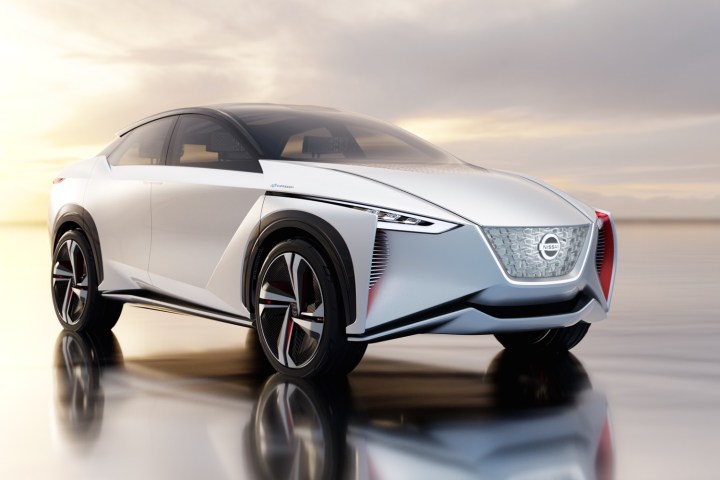
Nissan showed a surprising amount of foresight when it released the original Leaf in 2010. It was one of the first modern electric cars on the market, and it’s better than ever now that it’s in its second generation, but its hatchback body is out of tune with market demands in 2019. Buyers want ground clearance, big wheels, and a rugged design. That’s why the Japanese firm is honing in on the crossover segment as it plans a follow-up to the Leaf.
We’ve heard rumors of a Leaf-based crossover for years, and they’re finally about to materialize. Industry trade journal Automotive News learned Nissan showed the yet-unnamed model to its top American dealers. Photography wasn’t allowed, but some of the people who saw it and learned about it anonymously shed light on what to expect.
On paper, the specs sound good. The crossover has five seats, up to 300 miles of driving range, and it’s capable of hitting 60 mph from a stop in under five seconds. That figure makes it quicker than the curvaceous 370Z, but it won’t be presented or marketed as a sports car. It will arrive as a family-focused do-it-all aimed at buyers seeking a relatively normal car that just happens to be electric.
Nissan will position its next EV above the Leaf, though it won’t be a premium model dropped into the arena Audi, Mercedes-Benz, and Jaguar are fighting in. Its main rivals will include the Tesla Model Y, which is tentatively scheduled to enter production in 2020, and Ford’s upcoming Mustang-inspired EV.
Automotive News learned the model wears a “futuristic” look that resembles nothing currently on the market. It borrows a handful of styling cues from the IMx concept (pictured) unveiled the 2017 Tokyo Auto Show, and stylists took advantage of the relatively compact electric powertrain to tweak its proportions. One of the dealers who got a preview of the model explained the wow-effect continues inside — the entire dashboard is hidden until the driver pushes the start button.
Nissan will reportedly travel to the 2019 edition of the Tokyo show that opens its doors in October to give us a preview of the model, and we’re looking forward to seeing what the company unveils. The production version of Nissan’s next EV will begin arriving in showrooms in early 2021, meaning we might not see it until the 2022 model year. When it comes, it’s reasonable to speculate it will outsell the Leaf by a wide margin, even though it will cost considerably more.
Editors' Recommendations
- Mercedes’ electric eSprinter isn’t just greener, it’s better
- Cadillac aims to balance its lineup with a small electric SUV
- Lamborghini teases its first all-electric supercar ahead of Friday’s big reveal
- Nissan wants the 2023 Ariya to be its comeback EV, but the bar has been raised
- Jeep is launching its first two electric SUVs in the U.S. in 2024




